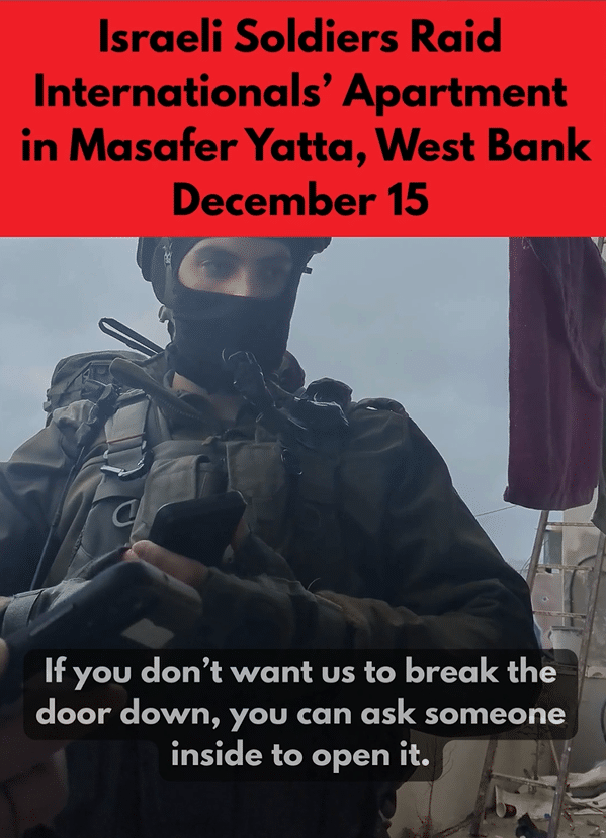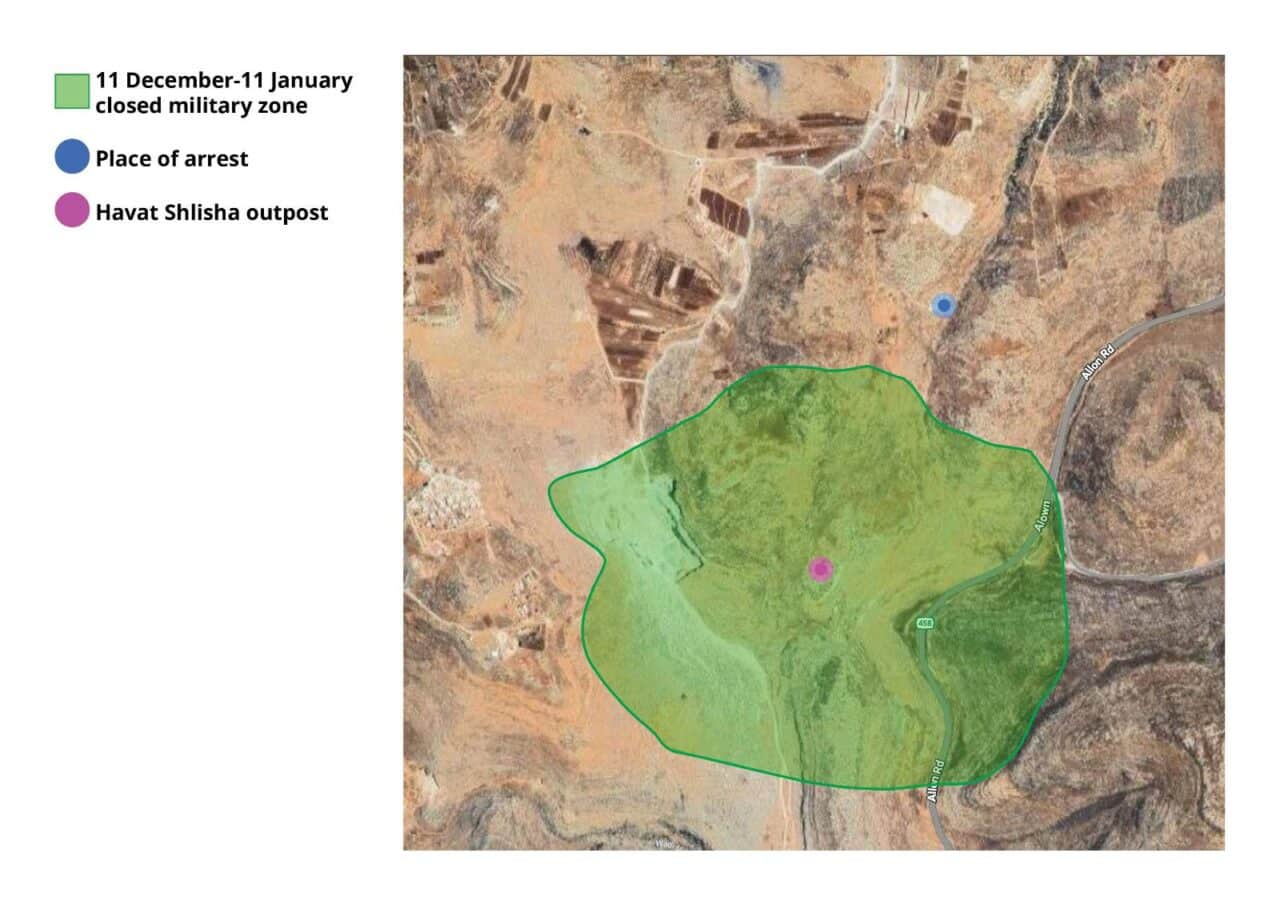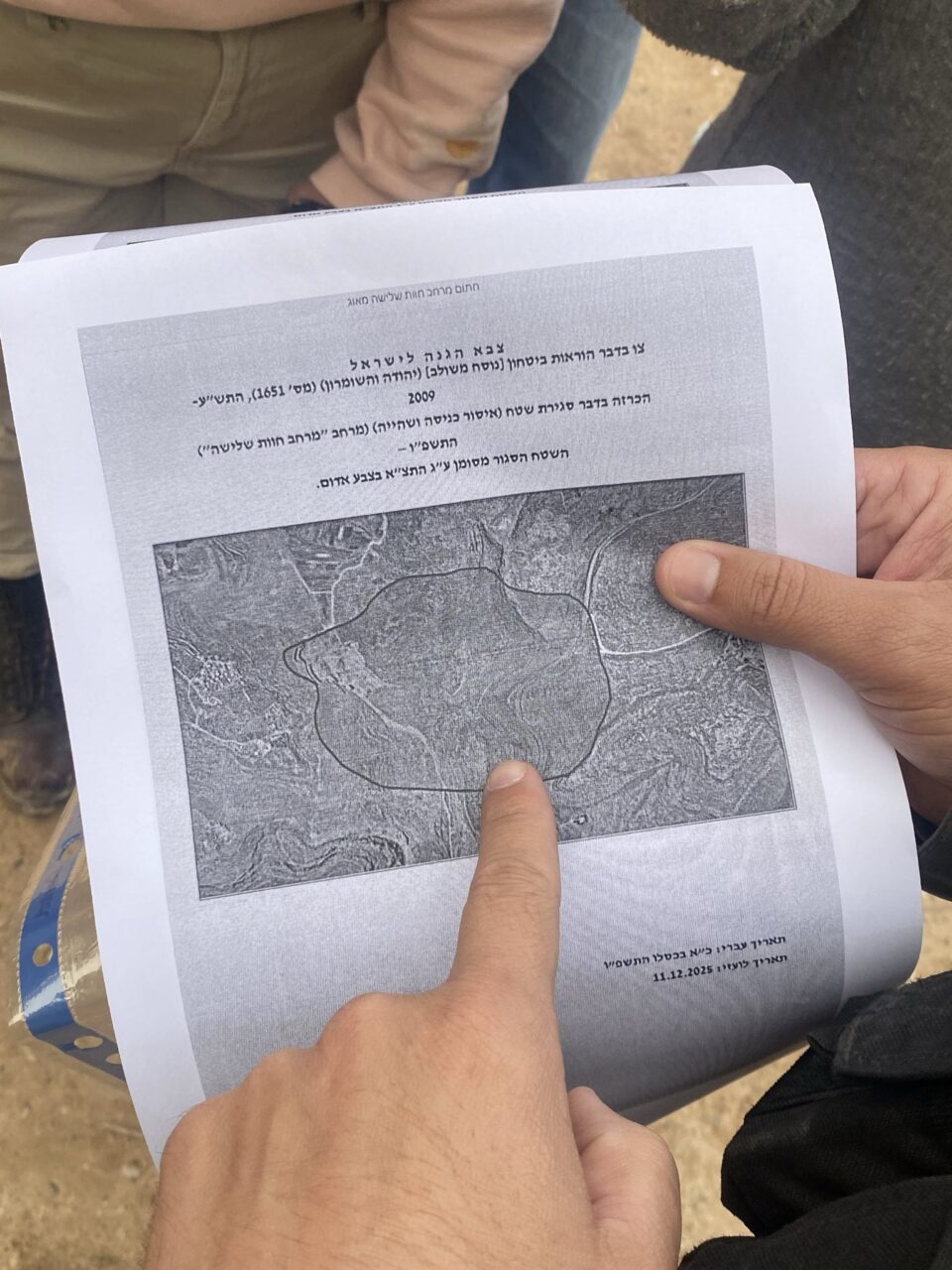Category: Press Releases
-
FOR IMMEDIATE RELEASE – A Day of Terror in Masafer Yatta: Occupation Army Brutally Arrests Elderly Palestinian Amputee and Raids Apartment of International Activists
Monday, 15 December 2025 Masafer Yatta – Yesterday morning, December 15, 2025, Israeli forces descended on Sheikh Said’s land in Rakiz, a village in Masafer Yatta. The Palestinian family had recently erected a razor wire fence to prevent settler sheep and ATVs from entering onto their land. The fence had only been there a short…
-
CALL TO ACTION: Write to the US Embassy in Jerusalem to Demand they Attend the Review Hearing of Illegally Detained US citizens and Protect the Abu Hamam Family
Tomorrow, December 16, US citizens Irene Cho and Trudi Frost will have a detention review hearing at 10 am. The US Embassy has so far refused to attend the hearing so we ask supporters to email the Embassy demanding their presence and to represent their citizens who were illegally arrested on December 12 in al-Mughayyer.…
-
US Activists Imprisoned by Israel while Challenging Deportation
FOR IMMEDIATE RELEASEDecember 14, 2025 Irene Cho and Trudi Frost were arrested on Friday, December 12, in the West Bank village of al-Mughayyer while staying with a family threatened with forced displacement. Their staying permits were revoked last night through a summary procedure, with officials refusing to review evidence of the illegality of the arrest.…



